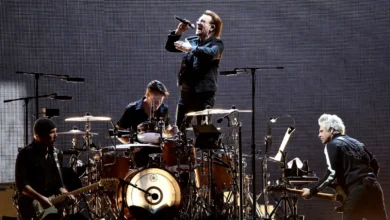Jackie DeShannon’s Timeless Classic “What the World Needs Now Is Love” Still Touches Hearts Across Generations
The mid-1960s marked a period of upheaval and transformation, with cultural shifts rippling through every corner of society. Amid this backdrop, a song emerged that struck a chord with a weary and divided public. Jackie DeShannon’s heartfelt performance of “What the World Needs Now Is Love” resonated deeply, offering a hopeful and healing message during a time defined by social unrest, political turmoil, and a growing call for compassion.
Written by the iconic songwriting duo Burt Bacharach and Hal David, the song’s path to completion was not without obstacles. Hal David struggled for months to find the right lyrical entry point that could speak to both the heart and the times. Eventually, he arrived at the now-famous opening: “What the world needs now is love, sweet love.” Though deceptively simple, those words captured a profound truth that would define the song’s legacy.
Jackie DeShannon, whose birth name is Sharon Lee Myers, hailed from the small town of Hazel, Kentucky. She had already built a varied and successful music career by the time she recorded this track, showcasing her versatility across genres like rockabilly, pop, and folk. With a voice filled with sincerity and soul, she became the perfect voice for a message rooted in love, unity, and the collective longing for peace.
Released in April 1965, the song quickly captured public attention, climbing to number seven on the US Billboard Hot 100 and reaching the top of the charts in Canada. Its widespread appeal lay not only in its catchy, melodic structure but in its ability to reflect the emotional climate of the era. As the civil rights movement intensified and the Vietnam War escalated, the song offered a timely and poignant plea for empathy and human connection.
Its emotional impact deepened in the years that followed. In 1968, after the assassination of Robert F. Kennedy, radio stations frequently returned to DeShannon’s recording as a source of solace. Its lyrics reminded listeners that even amid violence and sorrow, love remained a powerful and necessary force. The song became a kind of national balm, helping people navigate grief with grace and hope.
Though best known for this anthem, DeShannon’s career had many other highlights. She had already earned critical and commercial acclaim for songs like “Needles and Pins” and “When You Walk in the Room,” which showed her flair for melody and emotional storytelling. As one of the few successful female singer-songwriters of the early rock era, she helped pave the way for future generations of women in the music industry.
In 1969, she scored another major success with “Put a Little Love in Your Heart,” co-written with her brother Randy Myers and Jimmy Holiday. The song continued the optimistic themes of her earlier work and became one of her most enduring hits. With its infectious rhythm and uplifting message, it further cemented DeShannon’s role as a voice of positivity and social consciousness in American music.
The influence of “What the World Needs Now Is Love” has persisted well beyond its original release. Artists from across musical genres have recorded their own renditions, including Dionne Warwick, who offered a 1966 version and later revisited it in 2019. Each interpretation has helped keep the song’s message alive, demonstrating its adaptability and emotional relevance across generations and cultural landscapes.
Through the years, the song has been featured in numerous films and television series, helping to underscore moments of emotional weight and reflection. Its use in the 1969 movie *Bob & Carol & Ted & Alice* introduced it to a wider cinematic audience, further embedding it into the era’s soundtrack. Whenever the world seems divided or in distress, the song often resurfaces, offering a reminder of the enduring value of love and unity.
In 2023, the song received one of its highest honors when it was inducted into the U.S. Library of Congress’s National Recording Registry. This recognition is reserved for recordings that have made a lasting impact on American culture, history, or aesthetics. The selection affirmed the song’s place in the national conscience and highlighted its role as a beacon of compassion in an ever-changing world.
Jackie DeShannon’s interpretation of the song remains a shining example of music’s ability to uplift and unite. Its message remains powerfully resonant, continuing to speak to listeners during moments of hardship and division. The emotional clarity in her voice, combined with the lyrical simplicity of Hal David’s words and Burt Bacharach’s melodic mastery, results in a song that offers not just beauty, but purpose.
What makes the song so enduring is its straightforward yet profound delivery. There’s nothing overly ornate about the melody or the arrangement—but that’s where its magic lies. It speaks to the listener plainly, like a friend offering comfort in a difficult time. The combination of sincere performance and universal message has made it a classic that transcends the era it was born from.
As the world continues to face moments of unrest and uncertainty, “What the World Needs Now Is Love” remains a musical reminder of the values that bind us. It’s a call to remember the importance of compassion, to choose understanding over division. Its presence during turbulent times proves that some songs are more than entertainment—they’re emotional lifelines that carry generations through history.
Ultimately, the song stands as a shining testament to how art can mirror society’s deepest hopes. Jackie DeShannon’s heartfelt delivery, paired with the songwriting brilliance of Bacharach and David, created something that not only endures—but inspires. Decades later, its message continues to echo through history, urging us all to lead with love, especially when it’s needed most.



